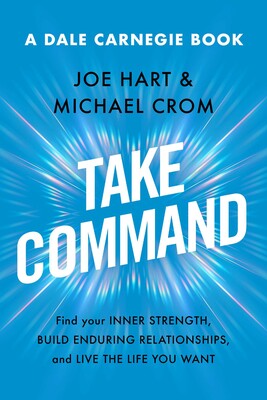There are a lot of reasons we might want to improve our performance—particularly our productivity—at work. Perhaps the company is moving to a four-day work week, and you need to increase daily efficiency. Or maybe you’re looking to impress a manager or company leader to be in line for a promotion. No matter the reason, we need to work hard if we want to improve our work performance in 2023.
When we think about how to improve our productivity, we see there are three areas that need improvement to increase professional performance: emotions, mindset, and physical health. When we harness these three aspects of our lives, then we can master our performance at work.
Mindset Mastery
Of all the things you can improve at work, mastering your mental state might be the most important. When we’re feeling negative at work, we will be less productive. Feeling stressed or depressed puts cognitive function in decline and makes problem-solving more difficult.
To master our mindset, we must start with being intentional. Being intentional means slowly and consistently directing/redirecting our thoughts to more positive outcomes. The more we do this, the more automatic it will become.
Mindset also means staying open-minded. In the changing modern business landscape, problems are best solved with novel solutions that move the company forward. Mastering your mindset means you can harness your productivity and creative output.
Emotional Mastery
When it comes to the emotional side of life, there are always opportunities for improvement at work. Emotions are a part of being human, and the goal, therefore, is not to remove our emotions but simply to recognize them for what they are saying and then consciously choose our actions rather than blindly reacting.
To master our emotions, we must be intentional in our actions. When an emotional situation comes up, try to identify the emotion you’re experiencing, ask yourself what the feeling is telling you, and then choose a responsible action in response. Being emotional—such as thinking negatively or being angry—at work can distract you from work and lower productivity.
Another aspect of mastering emotions is being in a psychologically safe space. Coming to work every day with a feeling of fear is no way to increase productivity. If you’re a leader, make sure you’re fostering a truly psychologically safe space. If you’re a worker feeling unsafe, find a trusted coworker or manager and let them know how you’re feeling. You won’t be truly productive until you feel safe at work.
Physical Mastery
Whether we’re tired, our back aches, or we have a sniffly nose, it is impossible to be at our best at work when our physical body isn’t well. Overworking, especially pushing ourselves when we’re sick, can result in burnout, chronic illness, and absenteeism—not to mention a drop in productivity.
To master our health at work, we must make changes. If you aren’t taking time for lunch or aren’t eating a balanced meal, then make an effort to do so from here on out. Ask if your company provides standing desks, which have been shown to increase productivity by up to 46%. Take breaks during the day to rest your eyes, get fresh air, or do some light stretching. When you aren’t distracted by your body, you’ll improve your performance at work.
Work – Productivity Tips
Try Calendar Blocking
Be protective of your time. Consider how much time you will need for each project and find a chunk of your calendar to schedule it in. Use these blocks for dedicated working time, and don’t allow any meetings or distractions during those hours.
Be Aware of Timing
Remember Parkinson’s Law? Your work will stretch to take up the time you give it. When calendar blocking your tasks, don’t overextend yourself. Deep work can only occur for a couple of hours at a time. Productivity goes down after that. Schedule work in small chunks and learn to manage your time.
Avoid Task Switching
Multitasking is a lie. What’s really happening is that your brain is task-switching between the two tasks quickly, which causes us to lose focus on one thing or another for a few seconds as our brain switches. This kills productivity. Avoid task switching/multitasking at all costs.
Use Performance Reviews
During a performance review, areas of improvement may not be listed or discussed. If they are, pay particular attention to what is suggested and see how it might integrate with your new productivity hacks and habits. If not, don’t be afraid to ask your leaders for more specific feedback.
Final Thoughts
There will always be opportunities for improvement at work. If you want to learn more about harnessing your power and becoming more productive, then you should explore Take Command: A Dale Carnegie Book. From controlling mindset and emotions to setting up an intentional life, this book can help put you on a path to better work (and life) performance.

